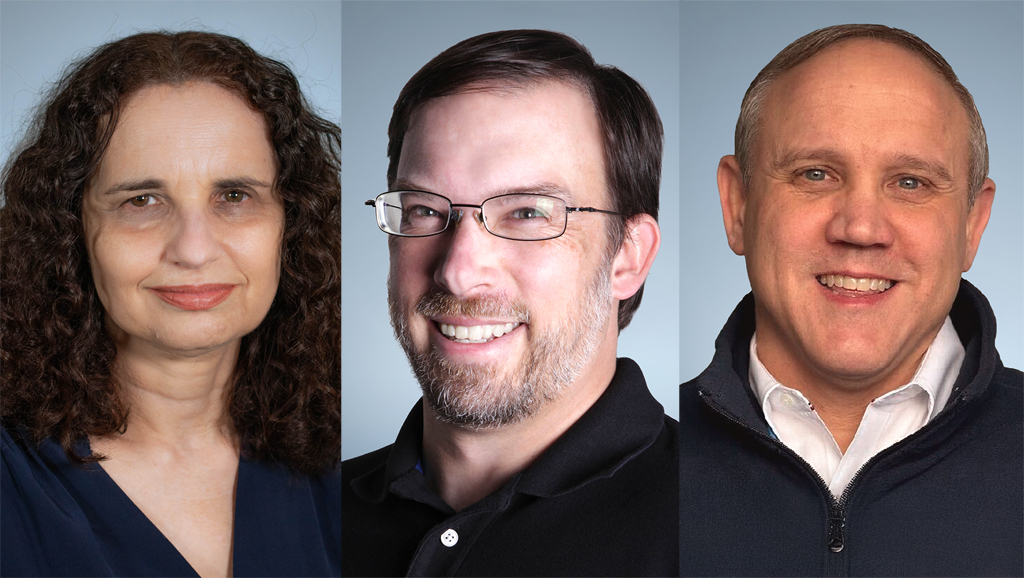Transmission boost
The professional video industry's #1 source for news, trends and product and tech information. Sign up below.
You are now subscribed
Your newsletter sign-up was successful
In December 2006, the FCC granted TV station WTVE-DT Channel 25 of Reading, PA, special temporary authority to begin operating a distributed transmission system on its DTV channel. The six-month STA grant is good news for proponents of this new transmission method. The FCC will take the experience of this station into account as it evaluates other STA requests and considers authorizing systems on a permanent, licensed basis.
Transmission technology
Distributed transmission operations use several synchronized transmitters spread around a station's service area — much like on-channel booster stations or cellular transmission sites. But unlike analog booster stations, which can generate a significant amount of self-interference, distributed transmissions rely on adaptive equalizer circuitry in DTV receivers to cancel or combine the multiple signals to produce a single signal.
Proponents say it improves spectrum efficiency by increasing service levels while maintaining or reducing interference. The lower power levels and lower towers allow greater placement flexibility — a particular boon in urban and suburban areas.
The FCC approved in principle the use of distributed transmission system technology in a 2004 report and order. In the order, the commission said that DTV stations wishing to use such systems should apply for STAs, which would be evaluated on a case-by-case basis under a set of interim guidelines. In November 2005, the interim guidelines were clarified, and the FCC began a rulemaking proceeding to establish long-term rules and standards for distributed transmission operations. This proceeding is currently pending.
WTVE-DT
WTVE-DT will use eight transmitters within the station's maximized construction permit contour. The transmitters will range in power from 0.11kW to 126kW. The proposed facilities, the station claims, will increase the DTV population served, while decreasing interference to other DTV and analog stations.
The professional video industry's #1 source for news, trends and product and tech information. Sign up below.
An FCC review found that the proposed operation was unlikely to generate impermissible interference. Moreover, the FCC specifically noted that information obtained from the station's STA operations would be valuable in evaluating the future use and deployment of the technology.
The FCC warned, however, that the station's operations would be subject to the rules developed in the distributed transmission system rulemaking proceeding. Thus, it is possible WTVE-DT will have to reconfigure or rebuild its distributed transmission facilities. And while the rulemaking is pending, any service beyond the station's authorized maximized service contour will be considered secondary in nature and will not be protected from interference.
In other FCC news: Ownership studies ahead
The commission will include 10 new economic studies in its ongoing review of the multiple ownership rules. Commissioners Michael Copps and Jonathan Adelstein have indicated that they were not consulted about the scope, content or authorship of the new studies. Nor does the FCC have a timetable for resolving the proceeding, which will affect all agency-regulated media.
Add to this criticism of the 2003 rules being reconsidered that the dissenters' party now controls Congress. It is expected that when the rules emerge from the Republican FCC, both the courts and Congress will weigh in before any new rules become effective.
Harry C. Martin is a past president of the Federal Communications Bar Association and a member of Fletcher, Heald and Hildreth PLC.
Dateline
April 2 is the deadline for TV, Class A, LPTV and translator stations in Delaware and Pennsylvania to file their 2007 renewal applications. TV, Class A and LPTV stations that originate programs must also file EEO Program Reports (Form 396) along with their renewals.
TV stations in the following states must file biennial ownership reports on or before April 2: Delaware, Indiana, Kentucky, Pennsylvania and Tennessee.
Also by April 2, TV, Class A and LPTV stations originating programming must place annual EEO reports on their Web sites and/or in their public files. The public file requirement only applies to full-power television.
Send questions and comments to:harry.martin@penton.com
